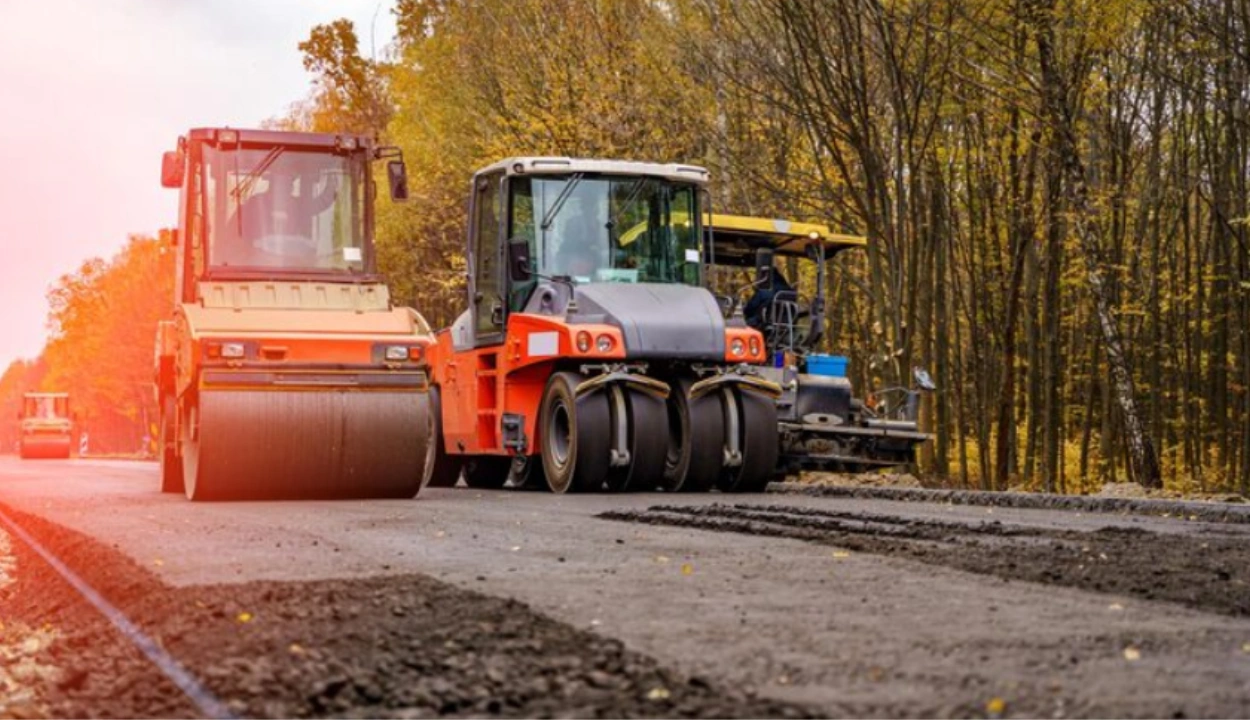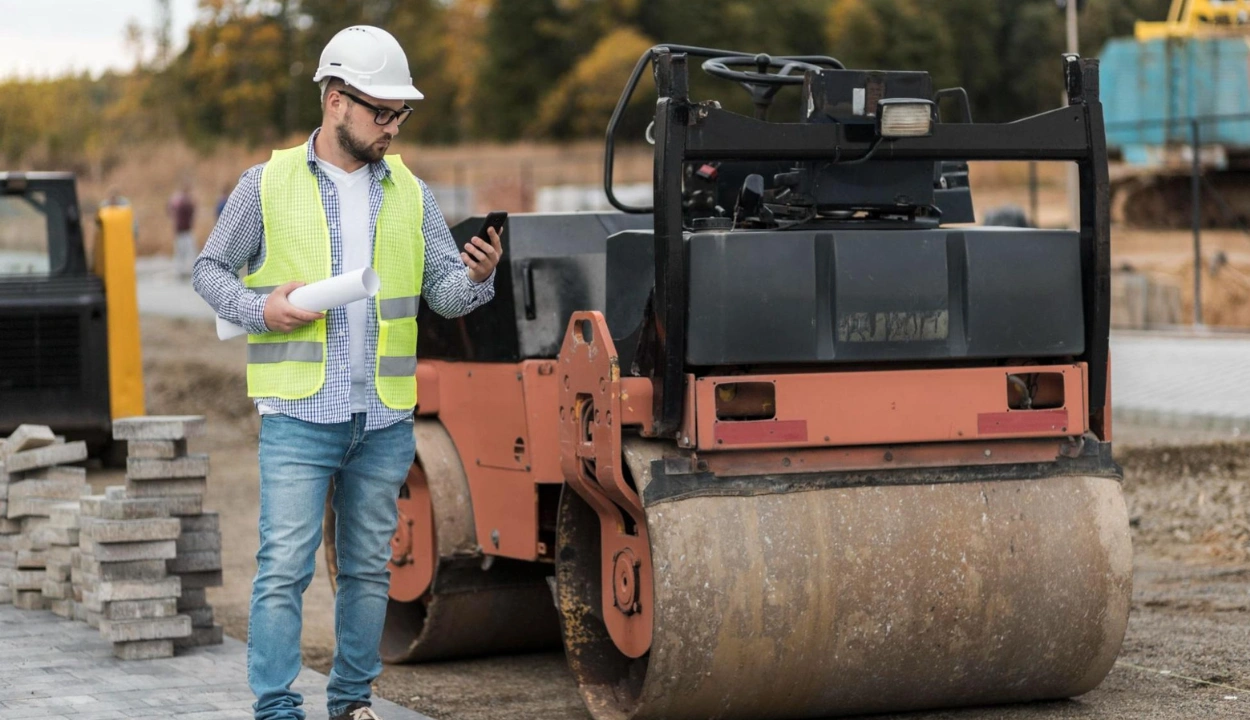What are Construction Dispatchers: Responsibilities, Qualifications, and Challenges
In construction, every aspect of the project should be carefully coordinated to ensure timely delivery. A dispatcher plays a key role in any project's logistics. Construction dispatchers ensure smooth operations by controlling materials, equipment, and crew dispatching.
In this blog, we will cover the role of the construction dispatcher, including their key responsibilities, the qualifications required to become one, salary expectations, and the challenges of being one.
What Is a Construction Dispatcher?

A construction dispatcher is someone who supervises the movement of resources such as materials, heavy equipment, and personnel on the construction site. They also closely work with the field personnel, equipment operators, and construction managers to cover the actual needs of logistics in real time.
Construction dispatchers work with the schedule, make sure everything is in accordance with safety standards, and solve any problems that may arise with schedules or when on the site or during transportation.
Major Responsibilities of a Dispatcher
Construction dispatcher is a dynamic role where the person is required to achieve multiple tasks at the same time.
A detailed account of the major duties and responsibilities usually assigned in this role includes:
- Scheduling and Dispatching: Dispatchers coordinate drivers, equipment, or service vehicles following the schedule, in which they will go to the appropriate locations based on customer requests and project specs. They create daily work and schedule work for the workforce.
- Regulatory Compliance: They also ensure DOT and fleet safety regulatory compliance. It includes the rules and regulations of the Federal Motor Carrier Safety Administration and the state rules for transportation of materials and equipment for construction.
- Communication Coordination: All job site activities are routed through dispatchers. They relay messages and information to and from work crews, supervisors, and field inspectors. The better the communication is, the better the ball is rolling, and everyone is aware of changes, delays, or special requests.
- Problem-Solving and Troubleshooting: Dispatchers have to deal with several questions, problems, and service requests as issues arise. These equipment malfunctions or changes in delivery schedules, and consult with supervising field personnel. If necessary, they will contact the shop to make repairs, and the service will be restored so that the service can continue and maintain schedules.
- Monitoring Personnel and Equipment: They also monitor the locations of personnel and equipment, as well as their utilization, to ensure that all the staff are in the right place and taking the time at the right time to prevent delays.
- Timekeeping and Administrative Support: Dispatchers also take care of the timekeeping activities through timecards and help the management team with some requests or small issues that may come up on the site.
Required Skills and Qualifications

Some skills and knowledge are essential to be successful as a construction dispatcher. The main qualifications for this position are:
- Experience: A construction dispatcher normally requires five to ten years of experience within a heavy highway and road construction company. It helps the professional get accustomed to the most common demands in construction sites and the equipment they use.
- Regulatory Knowledge: They have to have a solid foundation of DOT and Federal Motor Carrier rules and regulations, and state rules regarding Gross Vehicle Weight (GVW), height and weight factors, and other transportation requirements.
- Heavy Equipment Familiarity: A familiarity with heavy highway equipment and trucks is essential. The dispatchers must be able to understand the equipment's needs, including how to monitor use and schedule maintenance.
- Technical Skills: You will need to have a working knowledge of Microsoft Office, such as Outlook, Excel, and Word, to accomplish scheduling and record-keeping tasks.
- Self-Motivation and Leadership: Dispatchers must know how to do the job and be self-directed and motivated to do it. They need to be in charge of things, take charge of their team as they deal with and work through complex scheduling issues, and manage several projects at a time.
- Knowledge of Specific Operations: Some types of projects require an awareness of winch operations, hazmat transport (hazmat), and placarding, particularly if you’re working with heavy machinery and dangerous materials. In addition, knowledge of hydraulics, electronics, and gas and diesel machinery is advantageous.
Salary Expectations

Construction dispatcher salaries depend on factors including experience, where the dispatcher is located, and the size of the company or project. ZipRecruiter states that Construction dispatchers typically make between $45,000 and $70,000 a year.
However, they do get a bit higher, depending on experience, location, job duties, and salaries.
National Salary Overview
- Average Salary: Construction dispatchers have an average annual salary of approximately $76,122 and total compensation of $88,443 per year.
- Hourly Rates: The hourly wage is approximately $22.03 nationally. The amount that this can vary by state, however, will also depend on the state you live in. An example would be in Texas, where the hourly rate averages $20.52 with annual earnings as high as $31.58 per hour.
Factors Influencing Salary
Several elements can impact a construction dispatcher's salary:
- Experience: Seasoned dispatchers often command higher wages due to their expertise.
- Location: Urban areas or regions with high construction activity may offer higher salaries.
- Company Size: Larger firms or those handling significant projects might provide more competitive compensation.
- Certifications: Holding relevant certifications can enhance earning potential.
- Shift Work: Night or weekend shifts may come with additional pay.
Challenges Faced by Construction Dispatchers

A construction dispatcher's role is important, but also comes with various challenges such as:
- Logistical Complexities: Moving supplies to multiple sites at specific times becomes challenging because of how difficult it is to coordinate everything. Dispatchers must prioritize and handle several urgent tasks that require quick action.
- Communication Issues: Communication between multiple stakeholders is prone to breakdowns and mistakes that can cause mistakes and delays. They must be proactive in guaranteeing clean and correct interaction among groups.
- Time Pressure: Work for dispatchers is fast-paced, and delays in one division of the schedule can saddle your project with significant delays. One of the hardest things to manage is time.
- Safety and Compliance: Getting vehicles and equipment to follow all necessary safety rules and standards proves challenging, mainly during extensive, high-level building projects.
- Technology and Software Updates: With dispatching software becoming more sophisticated, more advanced tools and technology become available to keep efficiency up, but can also be hard to catch up with.
Clue for Dispatchers: Know Your Equipment Inside Out

A dispatcher in construction must skillfully handle all project-related resources to help projects reach their goals. Clue provides a complete dispatching system that brings order to the entire dispatch management process.
- Track Your Equipment: Clue provides quick ways and efficient ways for asset tracking. Clue shows you where your equipment currently stands and tells you its operational status at every moment.
- Smart Equipment Allocation: Clue helps equipment managers dispatch assets faster by placing them close to work sites and keeping equipment working most of the time. Clue makes sure you never let machines stand idle while better tasks need them, which boosts performance and prevents unnecessary downtime.
- Dynamic Scheduling: Dynamic scheduling from Clue lets you adjust work plans during active work hours. Clue lets you make schedule changes effectively to keep your operation running smoothly, no matter what project changes or resource availability surprises occur.
- Seamless Communication: With automated alerts, Clue sends real-time SMS and email messages that help your team stay up to date. Clue keeps all important stakeholders informed about any schedule or equipment issues to prevent mistakes and delays.
Conclusion
A construction project cannot succeed without the presence of a dispatching professional. They control multiple tasks in construction, including delivery arrangement, government regulations enforcement, as well as handling immediate problems. The changing construction sector creates more demand for qualified dispatching professionals. Those with proper qualifications and construction dispatching experience will find strong potential for growth in their work.
Utilizing Clue makes the dispatch work easier while making operations run better by handling asset matching, task assignment, and location tracking all automatically.
Transform Your Equipment Management













